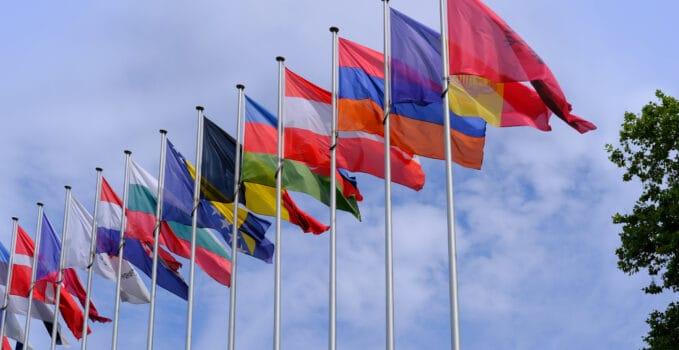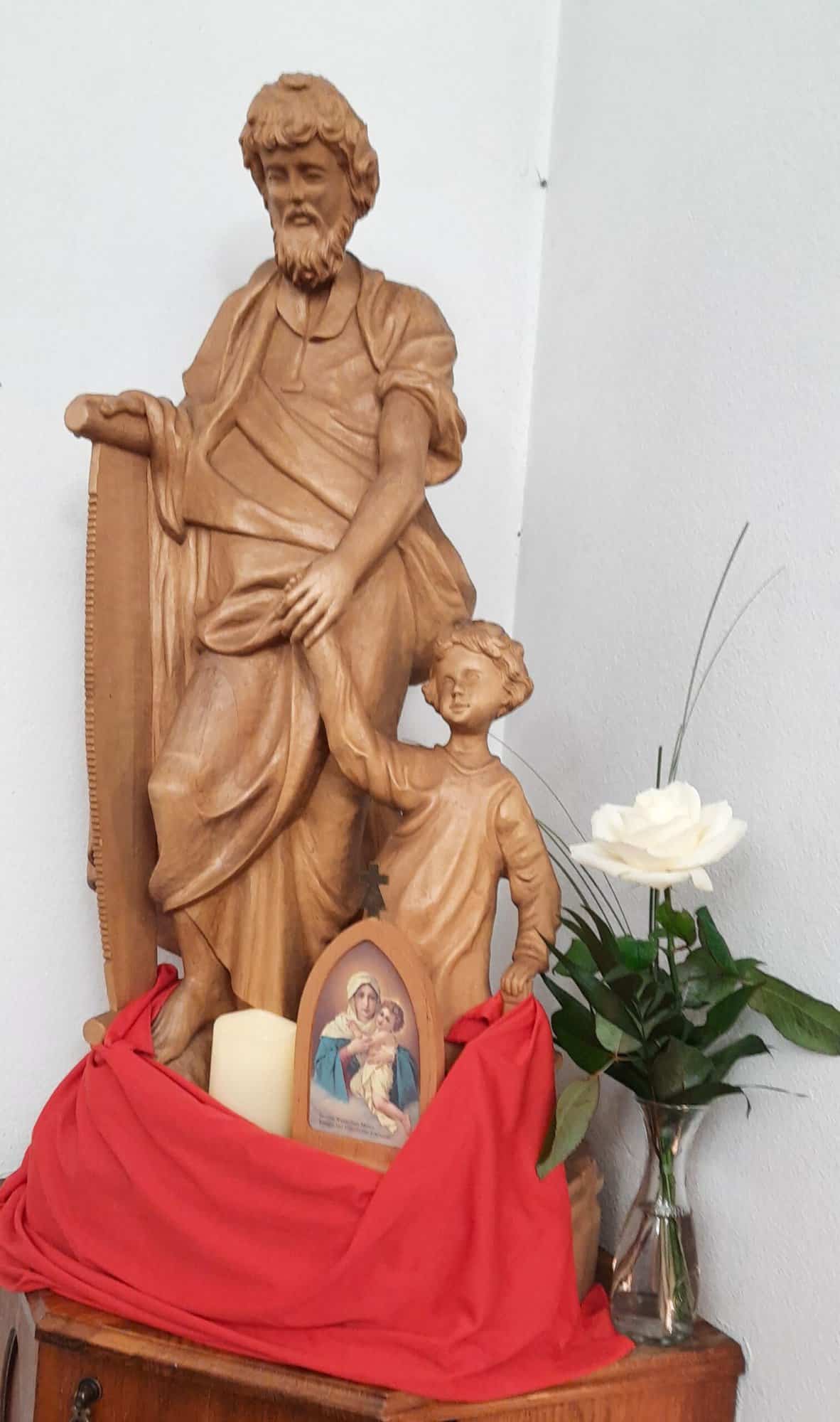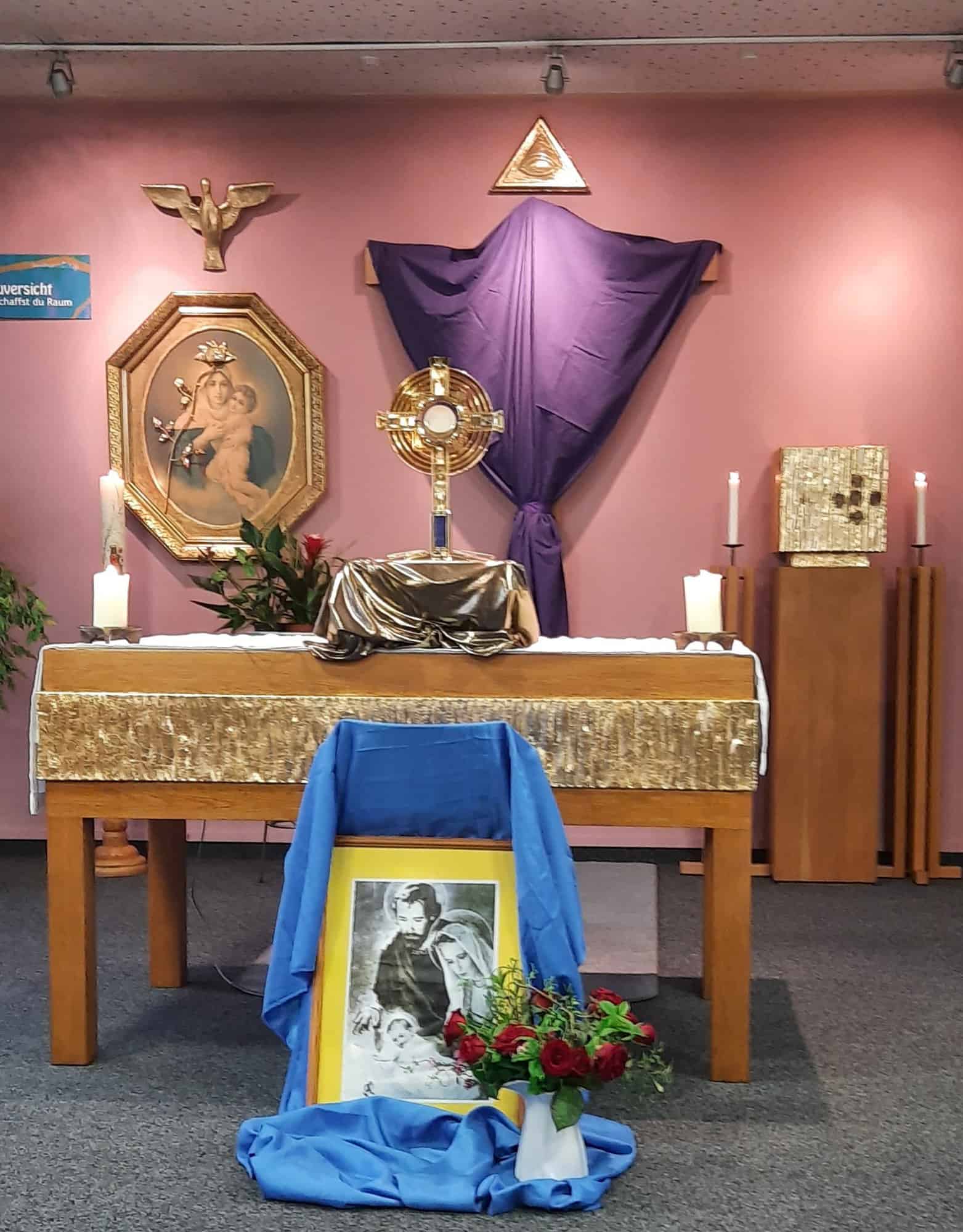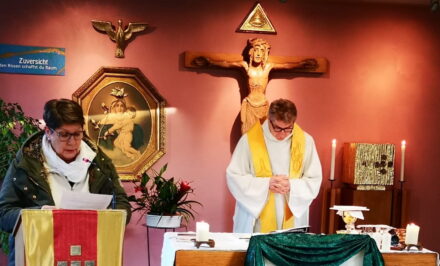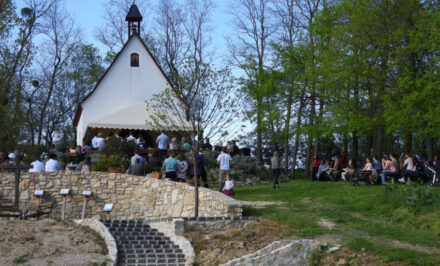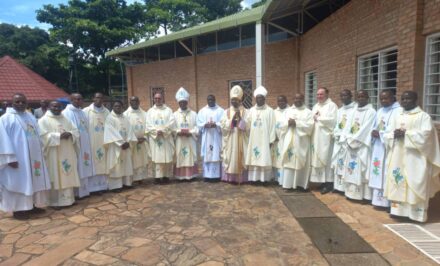GERMANY, Renate Siebenkäs •
The Covenant Celebration on the Marienberg on the eve of the Feast of St. Joseph, traditionally is always a celebration with St. Joseph… But with Diocesan President Martin Emge, one should not expect a sermon that will make you lean back in your pew. I would give this covenant celebration the title: How political can/should/must the Schoenstatt Movement be? Did Father Kentenich want a Movement that withdraws into the Shrine in prayer? Personally, I have finally been awakened to associate politics with Schoenstatt. It is beautiful to be allowed to be a world shaper. —
Diocesan President Martin J. Emge chose justice as the theme for his homily, “Several times in Holy Scripture, Joseph is described as ‘righteous’. In the Bible, people are “righteous” when they put their trust in God, live according to the Torah – the five books of Moses as God’s law of life for His people – and act for the good of others (see, for example, Ps. 112).
“Joseph is the first person called “righteous” in the New Testament, even before his son Jesus. The Evangelist Matthew tells how Joseph came into conflict with the Torah because Mary, his betrothed, was carrying in her womb a child that was not his. He decides to separate from her in secret so as not to expose her publicly. In doing so, he would have followed a path widely practiced by the Catholic Church: to proclaim the rules of the law in public, but to show mercy in secret – “in camera caritatis”. Matthew, however, tells how Joseph goes through a learning process, relying on his dreams and on the messenger of God who speaks to him. He publicly accepts Mary as his wife and thus becomes the father of the strange child with whom she becomes pregnant. Joseph decides that simply obeying the law is the wrong way. There is a principle of justice that transcends the letter of the law and has the common good in mind. Biblical wisdom recognizes this justice and contrasts it with the behavior of evildoers, who often enough invoke the enacted law in their behavior: “The righteous rejoice when justice is done, but the wicked” – such as the despot Herod – “is terrified” (Prov. 21:15); “the righteous has understanding for the plea of the poor” (Prov. 29:7). Joseph learns that justice means more than following written laws,” writes Jesuit Father Ansgar Wucherpfennig, SJ.
Righteousness – in Russia?
Martin Emge began by addressing current events: the “election” of Putin. Fair? Just? It was not an election. Everyone knew how it would end. There was no alternative, no other candidates.
And Navalny? He deliberately took the risk of being arrested again in 2021 when he returned to his native Russia.
Navalny stood up for freedom, for freedom of speech, for justice, and for the right of his people to truly choose freely and honestly what their hearts would decide.
Navalny, a man of courage, of unwavering confidence. When he went on trial on 20.02.21, he referred to the Beatitudes of Jesus’ Sermon on the Mount: “Blessed are those who hunger and thirst for righteousness!” He drew strength from his faith in God to stand up and fight for justice. (Source: https://promisglauben.de/alexei-nawalny-bezog-kraft-aus-den-seligpreisungen-der-bergpredigt/ )
This is what he stood for, this is what he died for. The President of Hearts is dead. He is a political martyr, explained Martin Emge.
Righteousness – in Nazareth
Righteousness also takes us to Nazareth. There, near the Basilica of the Annunciation, a congregation of sisters in the “House of the Righteous” guards a treasure, an ancient tomb, the Tomb of the Righteous. It could be the tomb of St. Joseph.
In the Scripture text (Mk 1:19) we heard: “Joseph, her husband, who was righteous and did not want to expose her”. In the Old Testament, righteousness meant living in harmony with God and man. According to the law of that time, Mary, who was expecting a child out of wedlock, should have been stoned to death.
Joseph’s trust in God is incredible. He trusted the angel’s voice. He trusted that everything was according to divine law. That his wife was pregnant and needed him in this particular situation.
He is involved in the upbringing of this child. Jesus also needed someone to teach him about righteousness. He could learn well from Joseph, the righteous man.
Joseph, a fighter for justice, lets himself be guided by the angel, lets God speak, is open to his vocation in life and listens carefully. Joseph is someone who has remained incorruptible. Always open to God’s will.
And what about us today?
We can still let ourselves be guided by him today. What perspective do we need?
Are we fighters like Navalny and now his wife? Or like St. Joseph? Or like Joseph Engling with his ideal of life: “I want to be all things to all men and all things to Mary.
And Joseph Kentenich?
Do we open our mouths when there is obvious injustice around us? Or do we prefer to remain silent?
The question of justice is our theme, a very important theme for the Schoenstatt Movement, for the Schoenstatt Family!
It is an interesting aspect: Joseph Kentenich, the Founder, founded or had founded an incredible number of branches for his work: for priests, women, men, couples, youth, deacons, and all of them with different possibilities of commitment, attachment, and involvement. Do we know them all? Father Joseph Kentenich wanted each one to be his own. No other spiritual community has so many individual branches.
I dream of a Schoenstatt that opens its mouth
The Schoenstatt Family needs attentive people who sense what others need!
Martin Emge literally:
“I dream of a Schoenstatt that not only opens its mouth piously, but also says what needs to be said. Did Fr. Kentenich want us to pray more rosaries or to get involved, to take responsibility, to open our mouths like St. Joseph? Let us encourage ourselves with faithful trust”.
What moved me and made me reflect
On the way home, I was very moved by the thoughts of the homily. They really shook me up with their view of justice and many questions arose:
How political did Father Joseph Kentenich want his Schoenstatt Movement to be?
He was very political, he fought with Hitler, otherwise he would not have ended up in a concentration camp. He also stood up for his Church – the result was exile in Milwaukee.
Did he want a praying community that withdrew to their shrines and prayed the rosary?
What about me? How do I commit myself to the cause of God, to justice?
Even Navalny moves me in a new way. He has openly confessed that his Christian faith gives him the strength to work for justice in Russia.
Could it be that during the Covenant evenings, through the stream of grace of renewing the Covenant of Love with the Blessed Mother, I receive the strength to consciously work for justice in my surroundings?
And now it becomes real. What is my attitude toward asylum seekers? Do I stand up for them when they are insulted?
Saint Joseph, help me to use my heart, my eyes, my ears and my mouth for justice and to recognize the will of God.
Original: German. Translation: Maria Fischer @schoenstatt.org


